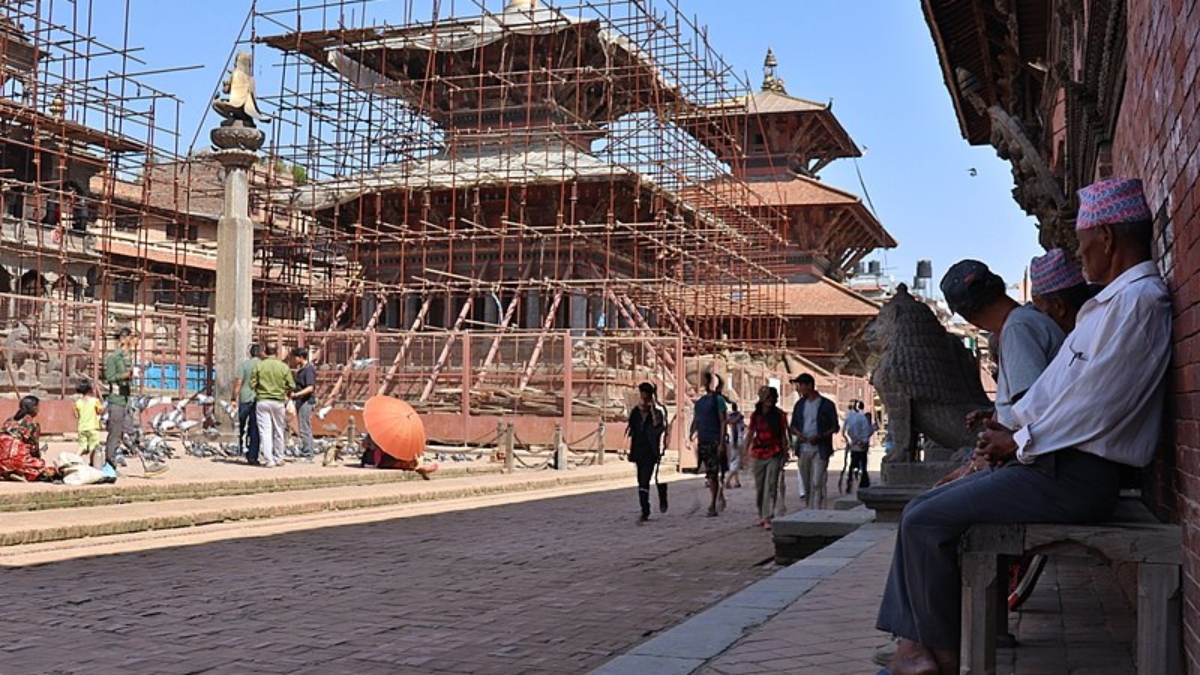Three years after a severe earthquake devastated Nepal, we revisit the questions it raised about political change and cultural heritage
On This Day: Columbus & the Caribbean
Tracing Christopher Columbus’ fateful landing more than 500 years ago to the modern-day Indigenous rights movement
Jonathan Power:The Man Closest to Medvedev
 Talking to Igor Yurgens is probably as close to talking with Dmitri Medvedev as one can get without interviewing the Russian president himself. His influence is regarded by those who follow the inner workings of the Kremlin as immense.
Talking to Igor Yurgens is probably as close to talking with Dmitri Medvedev as one can get without interviewing the Russian president himself. His influence is regarded by those who follow the inner workings of the Kremlin as immense.
By disposition a liberal academic, committed to the rule of law, he runs his own think tank which gives him the research and intellectual firepower to influence his close friend. Yurgens had something to do with clearing the path for the president to give his first on-the-record interview to the remarkably brave and independent newspaper, Novaya Gazeta, which had four star reporters, including Anna Politkovskaya, gunned down between 2001 and 2009.
I recently interviewed Yurgens and we talked about Georgia, where the Russian army defeated Georgian forces that precipitated an unnecessary war last August by invading its neighbor, the pro-Russian mini-state of South Ossetia.
I’ve long maintained that although Russia was acting within its rights in repulsing the unprovoked Georgian attack, it used a sledge hammer to kill a wasp. The Russian military used tactics that not only overwhelmed the Georgian army but created extensive destruction and civilian suffering. They seemed to be unnecessarily brutal.
“Yes, maybe the Russian reaction was too heavy,” replied Yurgens. “And there was no attempt at public relations before the event to explain what and why the Russians were doing. But then we always make the mistake of being too heavy handed. But if Medvedev hadn’t given the order to intervene—and remember the military had worked themselves up—Medvedev would have been a lame duck president for the rest of his term.”
Within a couple of days of the invasions, Yurgens rushed to Washington for back-channel talks with the U.S. State Department. He told me that he “felt deceived by [Secretary of State] Condoleezza Rice. The U.S. did know a week before the invasion, because the Russians made sure that the 800 American soldiers stationed in Georgia were not in the way in case we had to intervene. Also both American and Russian intelligence could see and follow the movement of the Georgian army. So the U.S. had the opportunity to intervene and tell the Georgians not to go ahead with their planned attack on South Ossetia.”
“But by then within the administration, opinion, including that of [President George W.] Bush and Rice, who a month before had publicly warned the Georgian leader [Mikhail] Saakashvili not to initiate a war, had shifted in [Vice President Dick] Cheney’s direction. I got this impression from Bill Burns, who I’ve known for a long time, the number two in the State Department and a very informed ex-ambassador to Moscow.”
“Cheney, in effect, undermined Bush and Rice. He knew that right-wing academics, ex-American diplomats and others, who journeyed to Georgia in the preceding weeks, had dropped hints to Saakashvili that if it came to a showdown Bush and Rice would be compelled to support the Georgians, despite their earlier warnings. Saakashvili was emboldened to do what he had long planned. He thought he could get away with it. And he thought by poking us in the eye he would strengthen his weakening position at home, where he was becoming less democratic and more ruthless by the day.”
Back home in Moscow, Yurgens says that Medvedev wants to heal the breach with both the European Union and America. Medvedev “likes” the new U.S. president, Barack Obama, who has assumed power “with new ideas,” and thinks that if “our institutions [change] then we won’t depend on the subjective,” Yurgens said.
Our World In 25 Years
The following article appears in the 25th anniversary issue of World Policy Journal.




